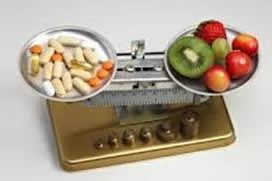 A new study (conducted by researchers at UT Southwestern Medical Center and was published in the journal Diabetes Care) concludes that it is the diet following the bariatric surgery which causes remission in diabetes. The patients with type 2 diabetes who follow the same strict diet required for those who undergo bariatric surgery are just as likely to see a reduction in blood glucose levels. A new study (conducted by researchers at UT Southwestern Medical Center and was published in the journal Diabetes Care) concludes that it is the diet following the bariatric surgery which causes remission in diabetes. The patients with type 2 diabetes who follow the same strict diet required for those who undergo bariatric surgery are just as likely to see a reduction in blood glucose levels.
 Dr. Ildiko Lingvay (Assistant Professor of Internal Medicine and first author of the research) said "for years, the question has been whether it is the bariatric surgery or a change in diet that causes the diabetes to improve so rapidly after surgery. We found that the reduction of patients' caloric intake following bariatric surgery is what leads to the major improvements in diabetes, not the surgery itself." Dr. Ildiko Lingvay (Assistant Professor of Internal Medicine and first author of the research) said "for years, the question has been whether it is the bariatric surgery or a change in diet that causes the diabetes to improve so rapidly after surgery. We found that the reduction of patients' caloric intake following bariatric surgery is what leads to the major improvements in diabetes, not the surgery itself."
 At first, the participants were treated only with the standard diet that patients who receive bariatric surgery are required to follow. The experts measured blood glucose levels to determine the impact of the diet.
Results showed that during the diet-only period, fasting blood glucose levels reduced 21% on average, and after combining the diet with the procedure, levels decreased 12%.
After a standard meal, patients' overall blood glucose levels dropped 15% in the diet-only period and 18% after combining diet with surgery. At first, the participants were treated only with the standard diet that patients who receive bariatric surgery are required to follow. The experts measured blood glucose levels to determine the impact of the diet.
Results showed that during the diet-only period, fasting blood glucose levels reduced 21% on average, and after combining the diet with the procedure, levels decreased 12%.
After a standard meal, patients' overall blood glucose levels dropped 15% in the diet-only period and 18% after combining diet with surgery.
 This indicates that the very strict diet given to patients after bariatric surgery is accountable for the quick diabetes remission, which usually occurs within days of the operation, the authors said. Previous research found that 67% of bariatric surgery patients were in complete remission for type 2 diabetes after 12 months. This indicates that the very strict diet given to patients after bariatric surgery is accountable for the quick diabetes remission, which usually occurs within days of the operation, the authors said. Previous research found that 67% of bariatric surgery patients were in complete remission for type 2 diabetes after 12 months.
 Dr. Lingvay explained:
"Unfortunately, such a restrictive diet is nearly impossible to adhere to long-term in the absence of bariatric surgery. We found that the success of bariatric surgery is mediated through its ability to control food intake, which in turn has a beneficial effect on diabetes." Dr. Lingvay explained:
"Unfortunately, such a restrictive diet is nearly impossible to adhere to long-term in the absence of bariatric surgery. We found that the success of bariatric surgery is mediated through its ability to control food intake, which in turn has a beneficial effect on diabetes."
|
 |

